Welcome to the AHG Mekong Delta Travel Guide. In the southern reaches of Vietnam, where the Mekong River gracefully meanders its way to the sea, lies an enchanting and vibrant region known as the Mekong Delta. Often referred to as the “Rice Bowl” of Vietnam, this captivating destination is a tapestry of winding waterways, lush greenery, and a rich cultural heritage that beckons travelers seeking an authentic and immersive experience.
Exploring the Mekong Delta: Vietnam’s Aquatic Wonderland
Spanning over 15,000 square miles, the Mekong Delta is a vast labyrinth of rivers, canals, and tributaries that crisscross the landscape, creating a unique and intricate network of water highways. The mighty Mekong River, originating in the Tibetan Plateau in China, embarks on a 4,909-kilometer journey through six countries before culminating in the Mekong Delta. As it flows through Vietnam, it deposits fertile silt into the East Sea, shaping an ever-expanding sediment bank that defines this region’s geography.
A Journey Through Authenticity
The Mekong Delta offers an immersive escape from the bustling urban life of Ho Chi Minh City, which is a mere 2–3 hours away by car. Stepping into this verdant oasis, you’ll find yourself transported to a world where time seems to slow down. The countryside scenery unfolds like a picturesque painting, featuring countless rivers, canals, verdant orchards, expansive rice fields, traditional wooden boats, and charming floating houses. Here, the rhythm of life is set by the ebb and flow of the Mekong’s waters, and the authentic village life of South Vietnam comes to life before your eyes.
Exploring the Delta’s Treasures
As you embark on your Mekong Delta adventure, there are several treasures awaiting your discovery:
1. Floating Markets: The Mekong Delta is renowned for being the only place in Vietnam where you can visit authentic floating markets. These bustling hubs of commerce, such as the iconic Cai Rang Floating Market, are the lifeblood of the delta’s local trade. Here, you can immerse yourself in the daily rituals of local villagers as you navigate the waterways. Bargain for fresh produce, savor a steaming bowl of pho from a breakfast boat, and witness the vibrant tapestry of colors that characterizes these markets.
2. Cultural Encounters: The Mekong Delta is home to a diverse tapestry of ethnic minority communities, including the Viet, Khmer, Cham, and ethnic Chinese Hoa. This rich blend of cultures has harmoniously coexisted for generations, creating a mosaic of traditions and lifestyles that are a delight to explore. Engage in a short candy-making class, participate in local customs, and gain insight into the art of creating tropical sweets—a skill passed down through generations.
3. Countryside Serenity: The Mekong Delta serves as a tranquil respite from the hustle and bustle of urban life. Within just a few hours of traveling from Ho Chi Minh City, you’ll find yourself enveloped in the serene beauty of the countryside. Whether you’re cruising along the waterways, wandering through orchards, or observing the daily lives of local villagers, you’ll have the opportunity to connect with the past and present of this lush rice bowl.
4. Gastronomic Delights: While often hailed as the “rice bowl” of Vietnam, the Mekong Delta’s culinary offerings extend far beyond rice. As you explore the region, you’ll have the chance to savor an array of delectable local dishes that have been shaped by the delta’s unique culture and geography. From exotic tropical fruits to the famous elephant-ear fish, your taste buds are in for a tantalizing journey.
A Living History
The Mekong Delta’s captivating history is a reflection of its geographical location and cultural tapestry. It’s believed to have been the ancient capital of the Funan Empire, a multi-ethnic empire that held sway over the region from the first to the sixth centuries. Subsequently, it witnessed the influences of the Chinese and Khmer Empires, contributing to its cultural diversity.
Today, the Mekong Delta is a cherished part of Vietnam, a testament to its rich heritage and the resilience of its people. Its legacy lives on through archaeological sites like Oc Eo, where ruins of ancient empires tell stories of bygone eras.
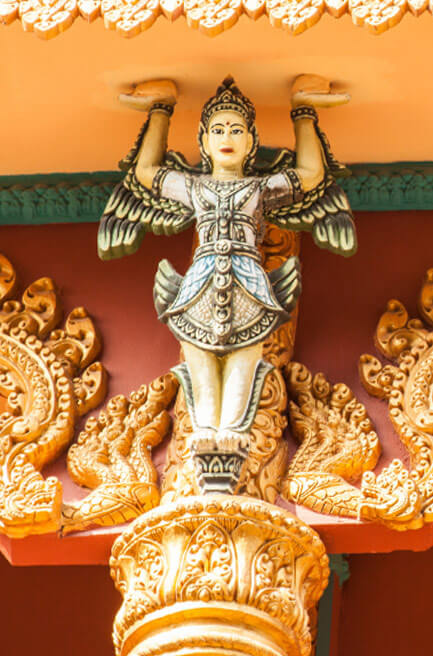
Hanoi Vietnam
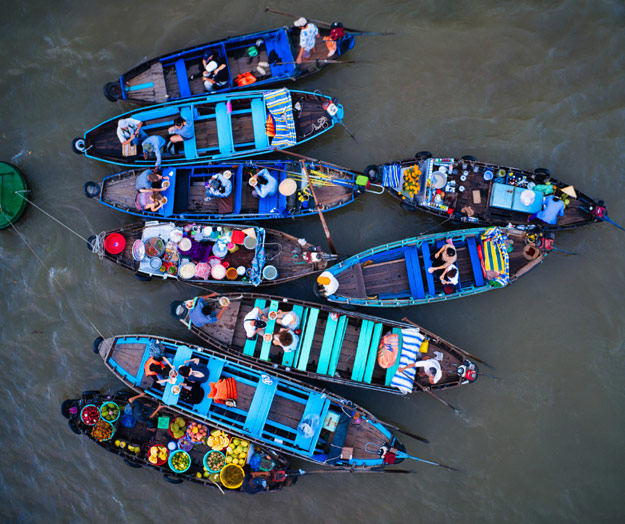
Must-Visit Attractions
Must-Visit Attractions and Landmarks in Mekong Delta
The Mekong Delta is teeming with captivating attractions and landmarks that showcase the region’s unique culture and natural beauty. Some must-visit places include: Floating Markets: Explore vibrant floating markets like Cai Be and Can Tho, where locals trade goods from boats. Khmer Pagodas: Discover the rich culture and architecture of Khmer temples around Tra Vinh. An Binh Island: Take a ferry ride to this charming, untouristed island with a maze of waterways and local life. Tra Su Cajuput Forest: Explore this protected forest with a boat ride through channels lined with cajuput trees. Local Cuisine: Savor local delicacies like banh xeo, hu tieu, and ca kho to, along with fresh fruits and coconut candies.
Cai Be Floating Market: This bustling market on the Tien River is a sensory delight. You can witness the lively exchange of goods as local vendors trade fruits, vegetables, and other products from their colorful boats.
Can Tho’s Cai Rang Floating Market: It’s one of the largest floating markets in the delta and offers a vibrant spectacle. As boats filled with produce and goods converge on the river, you can try purchasing some local snacks and fresh fruits.
Tra Vinh’s Khmer Pagodas: Tra Vinh is home to numerous stunning Khmer-style pagodas, such as the Ang Pagoda and the Hang Pagoda. These temples are known for their intricate architecture, vibrant colors, and serene surroundings, providing insight into Khmer culture and spirituality.
An Binh Island Exploration: An Binh Island offers an off-the-beaten-path experience. You can take a ferry ride from Vinh Long and immerse yourself in the island’s tranquil atmosphere. Explore its maze of waterways, visit fruit orchards, rice paddies, and interact with the friendly locals.
Tra Su Cajuput Forest Adventure: Located in An Giang Province, the Tra Su Cajuput Forest is a nature lover’s paradise. Navigate its channels with a boat ride through a dense canopy of cajuput trees. You’ll have the opportunity to spot various bird species, including storks, herons, and cormorants, amidst the lush greenery.
Local Cuisine Exploration: Delight in the Mekong Delta’s culinary wonders. Try “banh xeo,” crispy rice pancakes filled with shrimp, pork, and bean sprouts. Savor “hu tieu,” a flavorful rice noodle soup. Don’t miss “ca kho to,” caramelized fish cooked in a clay pot. Additionally, indulge in fresh tropical fruits, coconut candies, and rice wine, all unique to the region
How to Get To Mekong Delta
Getting to the Mekong Delta is relatively straightforward:
- From Ho Chi Minh City: Drive for 2-3 hours by car.
- By Air: Fly to Can Tho, which has its own airport with direct flights to Hanoi and Da Nang.
- Boat Tours: Consider boat tours to reach the delta, offering a scenic and immersive experience.
Best Time To Go Mekong Delta
The optimal time for a visit to the Mekong Delta falls within the dry season, spanning from December to May. This period offers several advantages:
Sunny and Dry Weather: You can expect abundant sunshine and dry conditions during these months, providing ideal weather for outdoor activities and exploration.
Lower Water Levels: The dry season brings lower water levels to the delta’s intricate network of waterways. This reduction in water levels makes it easier to navigate the region’s canals and rivers, facilitating boat tours and exploration.
Planning your trip to the Mekong Delta during the dry season ensures a more comfortable and enjoyable experience, with favorable weather conditions and improved access to the area’s unique attractions.
Best Way To Get Around
Navigating between attractions in the Mekong Delta requires consideration of the diverse transportation options available:
Boat Tours: Boat tours are a popular and practical choice for exploring the Mekong Delta, given its extensive network of waterways. These tours allow you to seamlessly travel along the delta’s rivers and canals, providing an immersive experience and access to floating markets and riverside villages.
Motorbike and Bike Rentals: To fully immerse yourself in the unhurried pace of the region and explore at your own leisure, renting a motorbike or bike is an excellent idea. With the main roads often congested with traffic, these two-wheeled options offer flexibility and the opportunity to venture off the beaten path.
Bus Services: While bus services are available in the Mekong Delta, it’s essential to be prepared for long journeys and relatively similar scenery along the way. Keep in mind that traffic occasionally halts at ferries, which are vital for road travel in the delta. However, some recently completed bridges have improved travel times.
Each transportation mode has its advantages, and the choice depends on your preferences, itinerary, and the experience you seek. Boat tours provide an authentic delta experience, while motorbike and bike rentals offer freedom, and bus services are practical for longer journeys.
Off the Beaten Path Hidden Gems
Exploring the hidden gems of the Mekong Delta unveils exceptional and lesser-known experiences:
An Binh Island: This charming island remains delightfully untouristed, making it an excellent destination for travelers seeking a glimpse of authentic delta life. An Binh Island boasts a maze of waterways, low-rise housing, and a serene atmosphere that epitomizes the delta’s way of life.
Tra Su Cajuput Forest: Located in An Giang Province, the Tra Su Cajuput Forest is a protected area that promises an encounter with diverse bird species. Navigating the forest’s labyrinthine channels via a boat ride provides a unique opportunity to witness the rich avian life, including storks, herons, and cormorants.
Local Villages: Venturing off the beaten path to explore lesser-known villages in the Mekong Delta offers travelers a chance to immerse themselves in the region’s authentic daily life. These villages provide insight into traditional practices, local crafts, and the warm hospitality of the delta’s residents.
These hidden gems showcase the Mekong Delta’s cultural and natural diversity, providing travelers with distinctive and memorable experiences beyond the well-trodden tourist path.
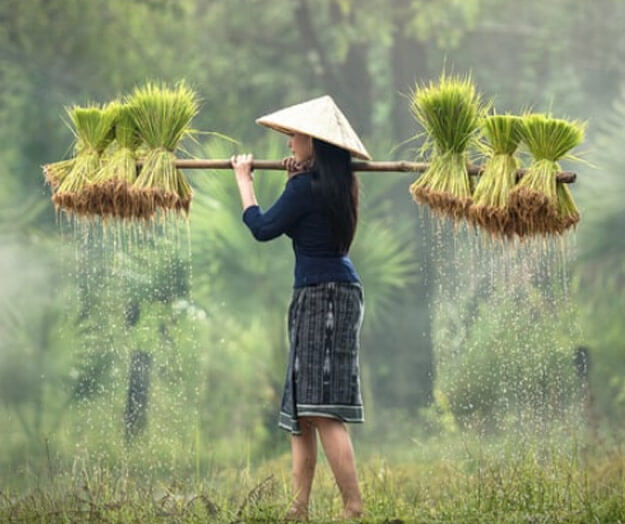
Local Cuisine / Best Restaurants?
Indulge in the Mekong Delta’s delicious cuisine, a rich tapestry of flavors that reflects the region’s culinary diversity:
Banh Xeo: Savor the crispy delights of Banh Xeo, rice pancakes brimming with succulent shrimp, tender pork, and crisp bean sprouts. The harmonious blend of textures and flavors makes this dish a must-try.
Hu Tieu: Dive into a steaming bowl of Hu Tieu, a rice noodle soup served in a flavorful broth. This comforting dish is a favorite among locals and showcases the delta’s culinary finesse.
Ca Kho To: Experience the flavors of Ca Kho To, caramelized fish simmered to perfection in a clay pot. The sweet and savory notes of this dish offer a taste of traditional Mekong Delta cuisine.
Fresh Fruit: Sample the region’s abundant fruits, a vibrant and refreshing way to immerse yourself in the delta’s natural bounty. Don’t miss the opportunity to try locally made coconut candies, a delightful treat.
Phuong Nam (Can Tho): Embark on a culinary adventure at Phuong Nam in Can Tho, where you can tantalize your taste buds with unique offerings like snake meat or crocodile steak. It’s a place where adventurous eaters can explore exotic flavors.
Chuon Chuon Bistro (Phu Quoc Island): Indulge in the stunning views and international menu at Chuon Chuon Bistro on Phu Quoc Island. This restaurant not only offers a diverse culinary experience but also a picturesque setting to enjoy your meals.
These culinary highlights capture the essence of Mekong Delta’s gastronomy, offering a spectrum of flavors and dishes that cater to a wide range of tastes and preferences.
Activities in Mekong Delta
Immerse yourself in the vibrant tapestry of activities that the Mekong Delta has to offer:
Floating Markets (Cai Be and Can Tho):
- Cai Be Floating Market: Explore the market at sunrise, hire a local boat to navigate through the bustling scene, and sample fresh tropical fruits and local snacks.
- Can Tho’s Cai Rang Floating Market: Take a boat tour early in the morning to witness the market at its liveliest, interact with vendors, and enjoy a bowl of delicious pho or hu tieu.
Khmer Pagodas (Tra Vinh):
- Ang Pagoda: Learn about Khmer Buddhist culture, admire the intricate architecture, and participate in traditional rituals.
- Hang Pagoda: Discover the tranquil surroundings, appreciate the serene atmosphere, and engage in meditation or reflection.
An Binh Island:
- Cycling Adventures: Rent a bicycle and explore the island’s charming villages, rice paddies, and fruit orchards at your own pace.
- Boat Rides: Take a relaxing boat ride along the island’s waterways, passing through lush vegetation and observing local life.
Tra Su Cajuput Forest (An Giang Province):
- Birdwatching: Bring your binoculars and spot various bird species, including storks, herons, and cormorants, as you glide through the forest’s channels.
- Photography: Capture the natural beauty of the cajuput trees, serene waterways, and abundant wildlife in this picturesque forest.
Unique Cultural Experiences
To immerse yourself in the local culture, consider these experiences:
1. Khmer Pagodas:
- Marvel at the Architecture and Traditions: Visiting Khmer pagodas in Tra Vinh is an opportunity to immerse yourself in the unique culture of the Khmer community. These pagodas are not only architectural marvels but also significant spiritual centers. As you explore their grounds, you’ll be captivated by the intricate design, vibrant colors, and ornate decorations that reflect Khmer Buddhist traditions.
- Participate in Traditional Rituals: Many Khmer pagodas welcome visitors to participate in their daily rituals. You can join in meditation sessions, prayer ceremonies, or even learn about traditional Khmer music and dance. Engaging with the monks and local devotees offers a profound glimpse into their way of life and spiritual practices.
2. Homestays:
- Live with Locals for an Immersive Cultural Encounter: Staying in a homestay in the Mekong Delta is an unparalleled cultural experience. You’ll have the chance to live with a local family, sharing their daily routines and traditions. From participating in cooking sessions to helping with farm work or fishing, you’ll gain insights into the authentic rural life of the delta.
- Learn Local Crafts and Skills: Many homestays offer workshops where you can learn traditional crafts such as weaving, mat making, or even rice noodle production. These hands-on experiences not only provide a deeper understanding of local livelihoods but also allow you to create your own souvenirs to cherish.
Both of these experiences offer a profound connection to the culture and traditions of the Mekong Delta. They allow travelers to go beyond sightseeing and become active participants in the region’s rich heritage, fostering meaningful interactions and lasting memories.
Language
Local Language of Mekong Delta
Learning a few basic Vietnamese phrases can greatly enhance your travel experience in the Mekong Delta and help you connect with the locals. Here are some essential phrases to get you started:
1. Greetings:
- Hello: Xin chào (sin chow)
- Good morning: Chào buổi sáng (chow bwuh-ee sang)
- Good afternoon: Chào buổi chiều (chow bwuh-ee ch-yoo)
- Good evening: Chào buổi tối (chow bwuh-ee toy)
- Goodbye: Tạm biệt (tam byet)
2. Polite Expressions:
- Please: Xin vui lòng (sin vwee long)
- Thank you: Cảm ơn (kahm uhn)
- Yes: Vâng (vung)
- No: Không (kh-uhng)
- Excuse me / Sorry: Xin lỗi (sin loy)
3. Basic Questions:
- What is your name?: Tên bạn là gì? (ten ban la zee?)
- How much is this?: Cái này bao nhiêu tiền? (kai nai bow nyoo tee-en?)
- Where is…?: …ở đâu? (uh jow?)
- How to go to…?: Làm sao để đi đến…? (lam sao day dee duhn…?)
- Can you help me?: Bạn có thể giúp tôi không? (bun koh te zup toy kh-uhng?)
4. Food and Dining:
- I would like…: Tôi muốn… (toy mwan…)
- Water: Nước (nw-uhk)
- Food: Đồ ăn (doh uhn)
- Delicious: Ngon (ng-uhn)
- Spicy: Cay (kahy)
- Vegetarian: Ăn chay (uhn ch-ai)
5. Numbers:
- 1: Một (m-uhwt)
- 2: Hai (haai)
- 3: Ba (bah)
- 10: Mười (m-uh-wi)
- 100: Trăm (truhm)
- 1,000: Ngàn (ng-uhn)
6. Common Expressions:
- I don’t understand: Tôi không hiểu (toy kh-uhng hye-oo)
- Can you speak English?: Bạn có thể nói tiếng Anh không? (bun koh te noy tee-eng ahn kh-uhng?)
- Where is the bathroom?: Nhà vệ sinh ở đâu? (nya vay sin uh jow?)
Learning and using these phrases will not only make your interactions smoother but also show respect for the local culture. Most locals will appreciate your efforts to communicate in their language.
Accommodation in Mekong Delta
Accommodation in Mekong Delta
Accommodation options cater to various budgets and preferences: Hotels: From budget to luxury, larger cities like Can Tho offer a range of hotels. Homestays: Experience local life and hospitality in various villages. Floating Homestays: Unique stays on the water. Eco-Lodges: Enjoy serene surroundings in eco-friendly lodges.
Hotels:
- Can Tho: This city offers a diverse range of hotels, from budget to luxury. You can find options like:
- Iris Hotel Can Tho: A comfortable 3-4 star hotel in the heart of the city.
- TTC Hotel – Can Tho: A mid-range option with modern amenities.
- Muong Thanh Luxury Can Tho Hotel: A 4-star hotel offering a comfortable stay.
Homestays:
- Various Villages: Throughout the Mekong Delta, you’ll find numerous villages offering homestay experiences. These are a great way to immerse yourself in local life. Examples include:
- Vinh Long Homestays: Explore Vinh Long province and stay with local families.
- Tra Vinh Homestays: Experience the culture of the Tra Vinh region through homestays.
Floating Homestays:
- Various Locations: Floating homestays are available in some areas of the delta, allowing you to stay on the water and enjoy the peaceful surroundings. For specific options, it’s best to inquire locally or search online for floating homestays in the Mekong Delta.
Eco-Lodges:
- Various Locations: Eco-lodges are scattered throughout the Mekong Delta, offering serene and eco-friendly accommodations. Some popular eco-lodges include:
- Mekong Lodge: Located in Ben Tre, it provides an eco-friendly escape.
- Mango Home Riverside: Situated in Cai Be, this lodge offers a tranquil setting.
Finding More Accommodation:
- Booking Websites: Websites like Booking.com, Agoda, and Airbnb are excellent resources for finding accommodation options in the Mekong Delta. You can filter your search by location, budget, and accommodation type.
- Local Recommendations: While in the region, don’t hesitate to ask locals or your hosts for recommendations on accommodation. They often have valuable insights into hidden gems and unique places to stay.
Remember to book your accommodation in advance, especially during the peak tourist season, to secure the best options for your travel dates.
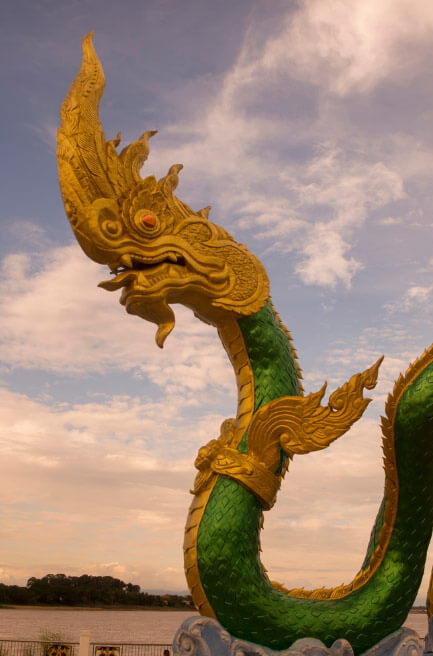
How's the weather in Mekong Delta?
Understanding the weather in the Mekong Delta is crucial for planning a successful and enjoyable trip. Here’s a more detailed breakdown of the weather in each season, along with some advice for travelers:
Dry Season (December to May):
- Weather: During the dry season, the Mekong Delta experiences sunny and dry weather. This is characterized by clear skies and a lower chance of rainfall.
- Temperature: Daytime temperatures are generally warm and pleasant, making it ideal for outdoor activities. Temperatures can range from 25°C to 35°C (77°F to 95°F).
- Water Levels: Water levels in the rivers and canals are lower during this period. This is advantageous for exploring the region’s waterways, as it allows for smoother boat rides and access to more areas.
- Travel Tips:
- Pack lightweight and breathable clothing to stay comfortable in the warm weather.
- Use sunscreen, sunglasses, and a hat to protect yourself from the sun.
- Stay hydrated, as the dry season can be hot and dry.
Wet Season (June to November):
- Weather: The wet season in the Mekong Delta is characterized by frequent heavy rain and occasional flooding. Rainfall is common, and you can expect overcast skies and occasional thunderstorms.
- Temperature: Despite the rain, temperatures remain warm, ranging from 25°C to 32°C (77°F to 90°F).
- Water Levels: The heavy rain leads to higher water levels in rivers and canals. While this can limit some activities, it creates lush and vibrant landscapes.
- Travel Tips:
- Pack waterproof clothing, including a rain jacket and umbrella.
- Be prepared for occasional travel disruptions due to flooding, such as road closures or changes in boat schedules.
- Check weather forecasts regularly and plan indoor activities on rainy days.
- The wet season is an excellent time to witness the lush greenery of the delta and experience the unique atmosphere of floating markets.
General Advice:
- Regardless of the season, it’s essential to stay informed about the weather forecast for your travel dates. Be flexible with your plans in case of unexpected weather changes.
- If you visit during the wet season, embrace the rain and take advantage of the beautiful landscapes. Just be prepared for occasional travel adjustments.
- Use local knowledge to your advantage. Locals are accustomed to the weather patterns and can provide helpful advice on planning activities.
By considering the weather conditions and being prepared, you can make the most of your visit to the Mekong Delta, whether you prefer the dry or wet season.
Recommended Itinerary
1 Week in Mekong Delta
Here’s a sample itinerary for a week-long trip to Mekong Delta:
Day 1-2: Explore Can Tho and Visit Cai Rang Floating Market
- Day 1: Upon your arrival in Can Tho, the largest city in the Mekong Delta, settle into your chosen accommodation. Begin your exploration with a visit to the vibrant Can Tho Night Market, where you can sample local street food.
- Day 2: Rise early to experience the iconic Cai Rang Floating Market. Board a boat and navigate through the bustling market, where local vendors sell fresh produce and goods from their boats. This immersive experience offers a glimpse into the daily life of Mekong Delta residents. In the afternoon, explore other attractions in Can Tho, such as the Munirangsyaram Pagoda and the Can Tho Museum.
Day 3: Venture to An Binh Island for a Serene Experience
- On the third day, take a ferry ride from Vinh Long to An Binh Island. This serene and less touristy island is perfect for a tranquil getaway. Explore the island’s maze of waterways, lush vegetation, and local life. Enjoy a boat ride through fruit orchards, rice paddies, and witness the unhurried pace of delta living.
Day 4: Discover Tra Su Cajuput Forest
- Travel to An Giang Province to visit the Tra Su Cajuput Forest, a protected area with a unique ecosystem. Explore the forest on a boat ride through a network of channels lined with towering cajuput trees. Keep an eye out for diverse bird species, including storks, herons, and cormorants. It’s a nature lover’s paradise.
Day 5: Visit Tra Vinh for Khmer Culture
- Tra Vinh is known for its significant Khmer community. Explore the town’s rich cultural heritage by visiting Khmer temples and pagodas, such as the Ang Pagoda and Hang Pagoda. Immerse yourself in the vibrant colors and unique architecture of these cultural landmarks.
Day 6: Explore Local Villages Off the Beaten Path
- Dedicate a day to discovering lesser-known villages in the Mekong Delta. These off-the-beaten-path destinations provide an authentic glimpse into daily life. Engage with locals, learn about their traditions, and savor traditional dishes. Consider visiting villages like Sa Dec, known for its flower farms, or My Tho for a quieter experience.
Day 7: Culminate the Trip with Local Cuisine and Cultural Experiences
- On your final day, indulge in the Mekong Delta’s delicious cuisine. Visit local restaurants or markets to sample regional specialties like banh xeo, hu tieu, and ca kho to. Don’t forget to try fresh fruits and coconut candies. In the afternoon, engage in cultural experiences, such as attending a traditional music performance or exploring local markets for souvenirs.
This week-long itinerary allows you to experience the diverse facets of the Mekong Delta, from bustling floating markets to serene natural landscapes and rich cultural heritage. Adjustments can be made based on your interests and preferences, ensuring a memorable and immersive journey through this enchanting region.
